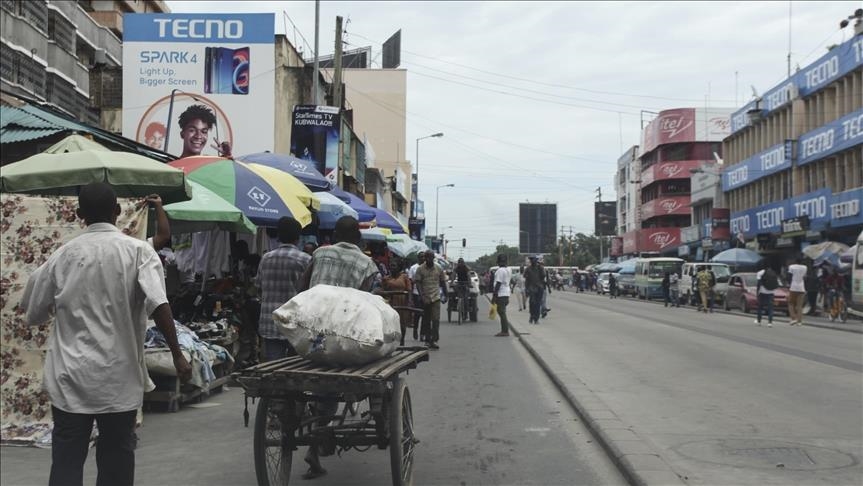Tanzania slashes controversial mobile money levy
DAR ES SALAAM, Tanzania
Tanzania has reduced a controversial levy on mobile money transactions introduced a year ago by 43%, bringing relief to users who were shouldering a heavy burden when sending or receiving money using mobile phones.
Tanzania is among many African nations that have imposed a tax on mobile phone-based transactions, which local analysts say has hurt millions of small businesses and reversed impressive gains in economic inclusion.
Presenting the country’s annual budget for the 2022-23 financial year last week, Mwigulu Nchemba, Tanzania’s finance minister, said the measure is intended to reduce the cost of living for Tanzanians who are facing economic problems.
“I propose an amendment to the national payment system…by reducing the mobile money transaction levy on sending and withdrawing money from a maximum of 7,000 Tanzanian shillings ($3) to 4,000 ($1.72) on each transaction,” he said.
In August last year, the country’s leading human rights advocacy group — the Legal and Human Rights Centre (LHRC) — filed a lawsuit against the government, opposing the new levies on mobile money transactions meant to increase government revenues.
Anna Henga, the center’s executive director, welcomed the move to slash the levy and urged the government to completely get rid of it to facilitate ordinary citizens as well as small and large businesses.
“This is a positive step, but we call upon the government to remove it completely and think twice when imposing taxes that are ultimately going to hurt small businesses and affect poor people,” she told Anadolu Agency.
The controversial levy imposed last year was strongly criticized, with industry experts warning that it was placing a heavy burden on the impoverished populace and hurting financial inclusion in the country’s fast-growing digital industry.
Tax for development
The government defended the move to impose the so-called “patriotic levy,” saying it would be used to improve the lives of the same people who complain about spiraling costs in the country.
According to Nchemba, the levy on mobile transactions, estimated at 1.254 trillion Tanzanian shillings ($538.2 million) per year, was being used to finance road construction and water projects in rural areas.
However, locals have also welcomed the government’s move to slash the tax.
“I think it is a very wise decision. Many people almost stopped sending and receiving money on their mobile phones. Companies also reported huge losses. The government has heard the people’s cries. I commend them for taking this action,” said Daudi Kweka, a resident of Bunju, an area in the financial hub Dar es Salaam.
Fatma Hassan, a mobile money agent in Dar es Salaam who lost nearly half of her loyal customers when the government imposed the levy, is hoping to regain more business in July when the new policy comes into effect.
“For me, this tax was a big setback. I lost my customers and I have been struggling to pay the rent. I hope the situation will change and I might get more business soon,” she said.
Mobile money services are a key driver of socioeconomic growth, creating employment, driving business productivity, facilitating investments, and contributing to economic formalization, observers said.
Citizens shun services
Although mobile money services have been immensely popular among the country’s underserved population, especially women and people living in rural areas, evidence suggests that the majority of Tanzanians were turning away from them after the introduction of the levy.
“The levy is clearly detrimental to the digital and financial gains the country made over the years,” said Desderius Asante, a proprietor in the telecom sector.
“When we have the right policy and clear regulatory conditions in place, mobile money will almost certainly become the backbone of payment in the digital economy,” he said.
According to him, mobile transactions have the potential to stimulate the agricultural, health and education sectors by increasing access to services.
As of June 2021, Tanzania had 33.2 million mobile money accounts relying on a network of agents managing transactions both in rural and urban areas, official data show.
The use of mobile transactions pushed the percentage of Tanzanians using formal financial services from 16% to 65% between 2009-2017, making the country the leader in the East African market with 44% of adults having access to banking through these services.
“The only mistake the government should avoid is to impose a tax on mobile money transactions, because doing so will have a multiplier effect and cause an unnecessary increase in the cost of living for many people,” said Asante.
Anadolu Agency website contains only a portion of the news stories offered to subscribers in the AA News Broadcasting System (HAS), and in summarized form. Please contact us for subscription options.




